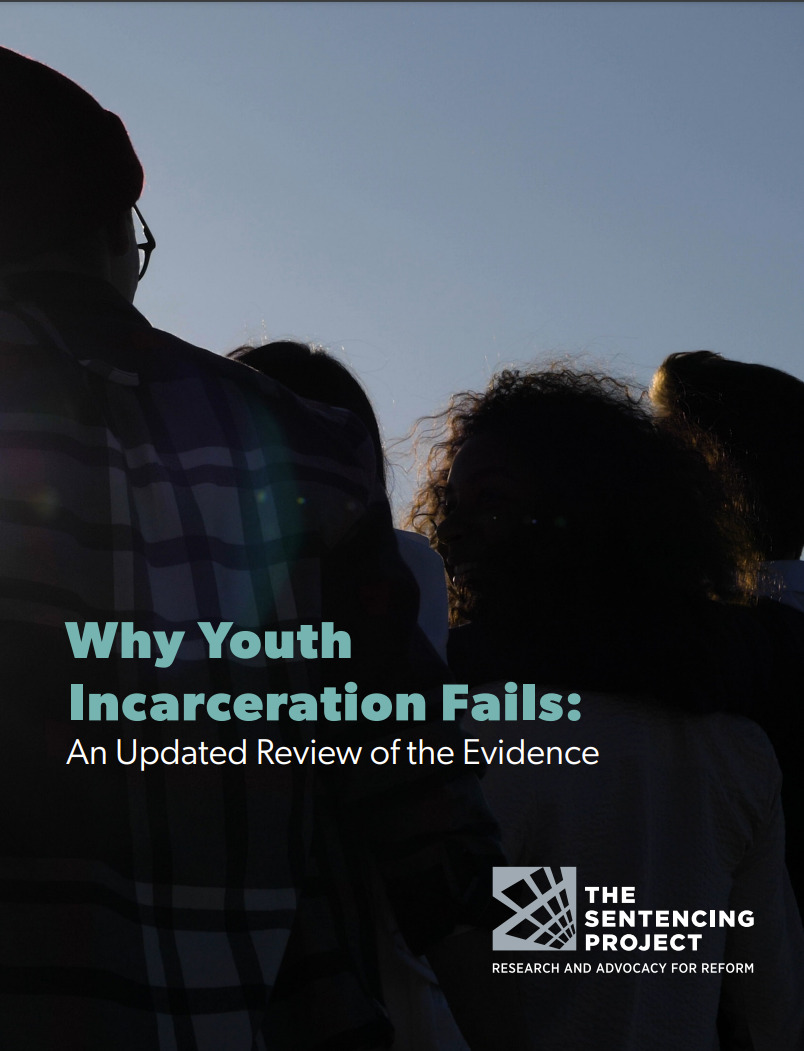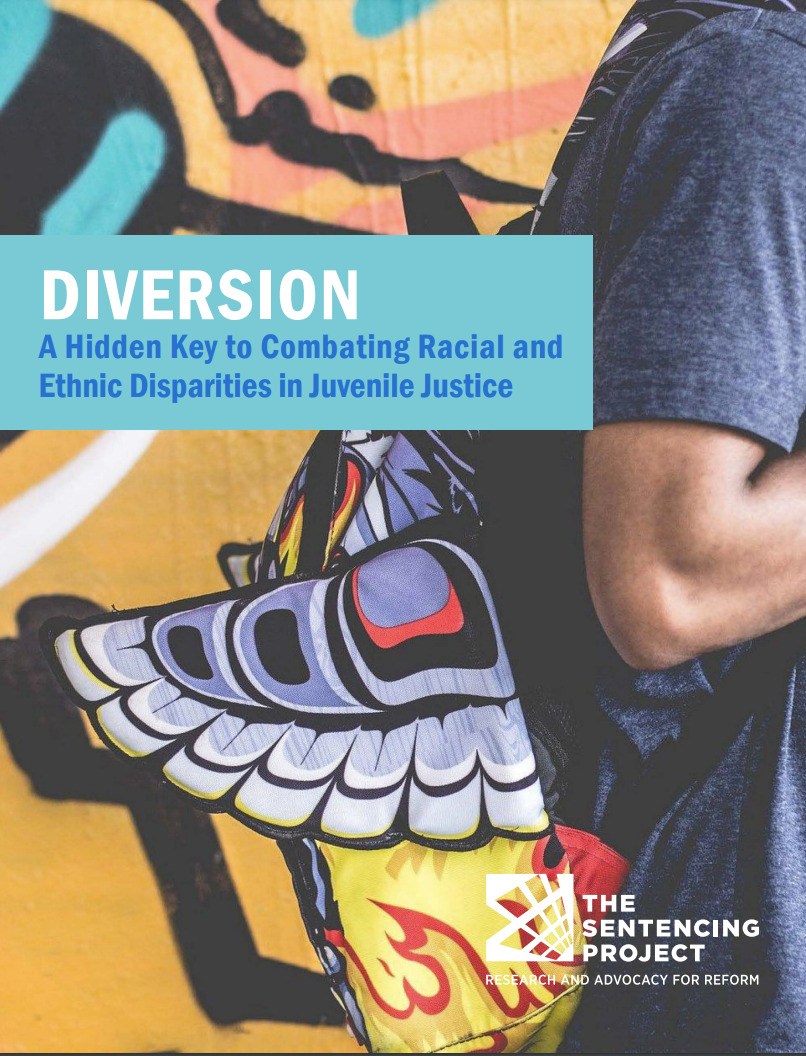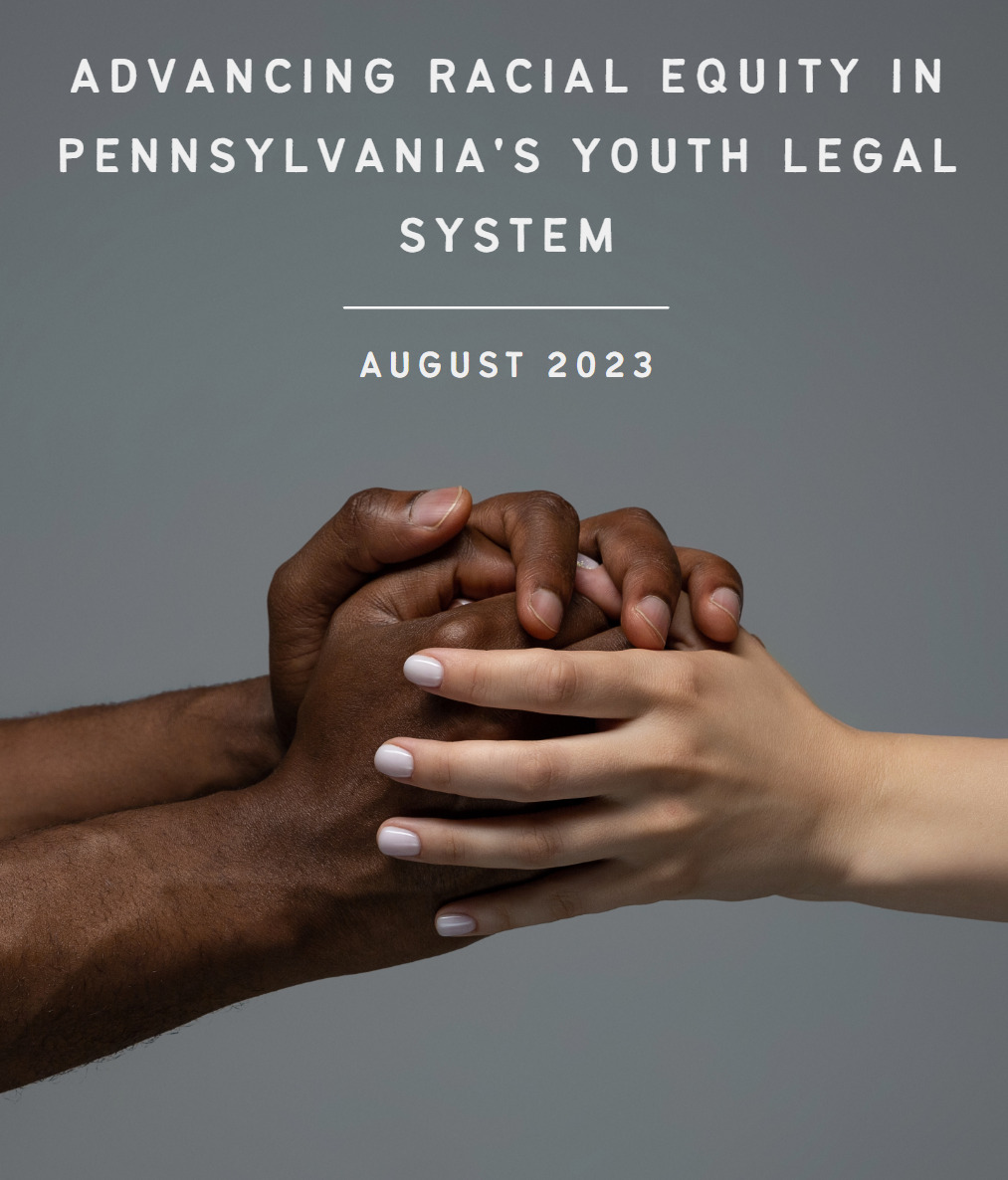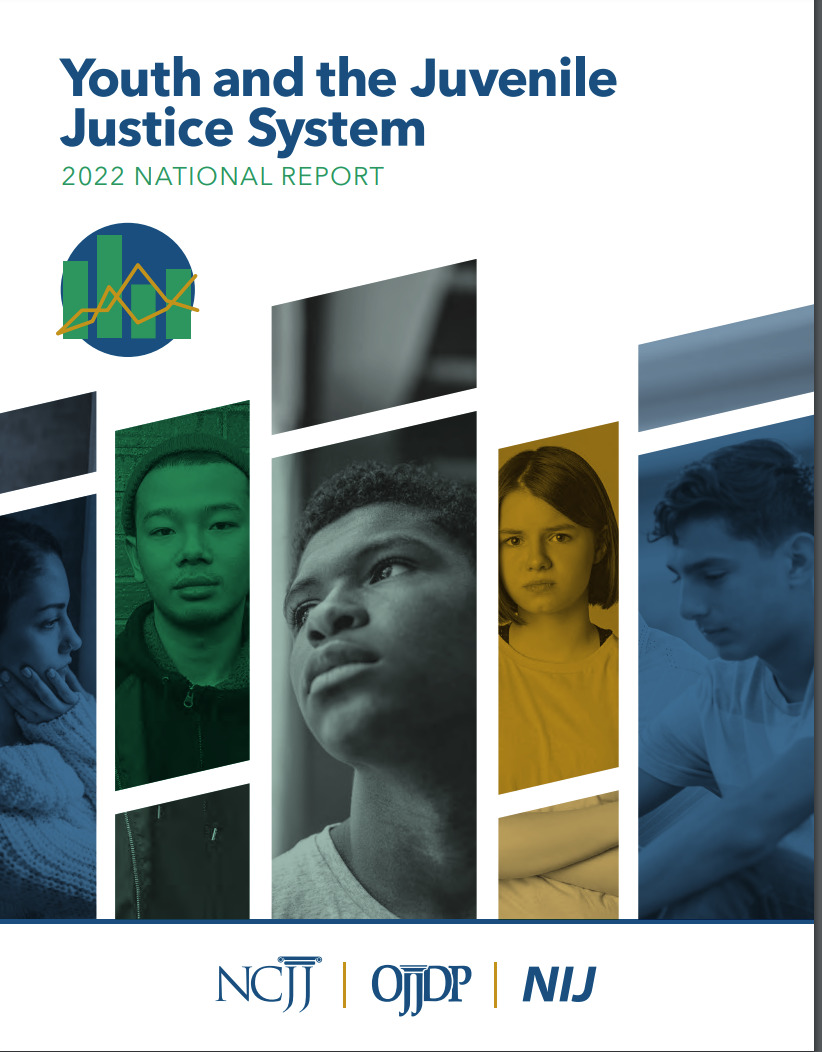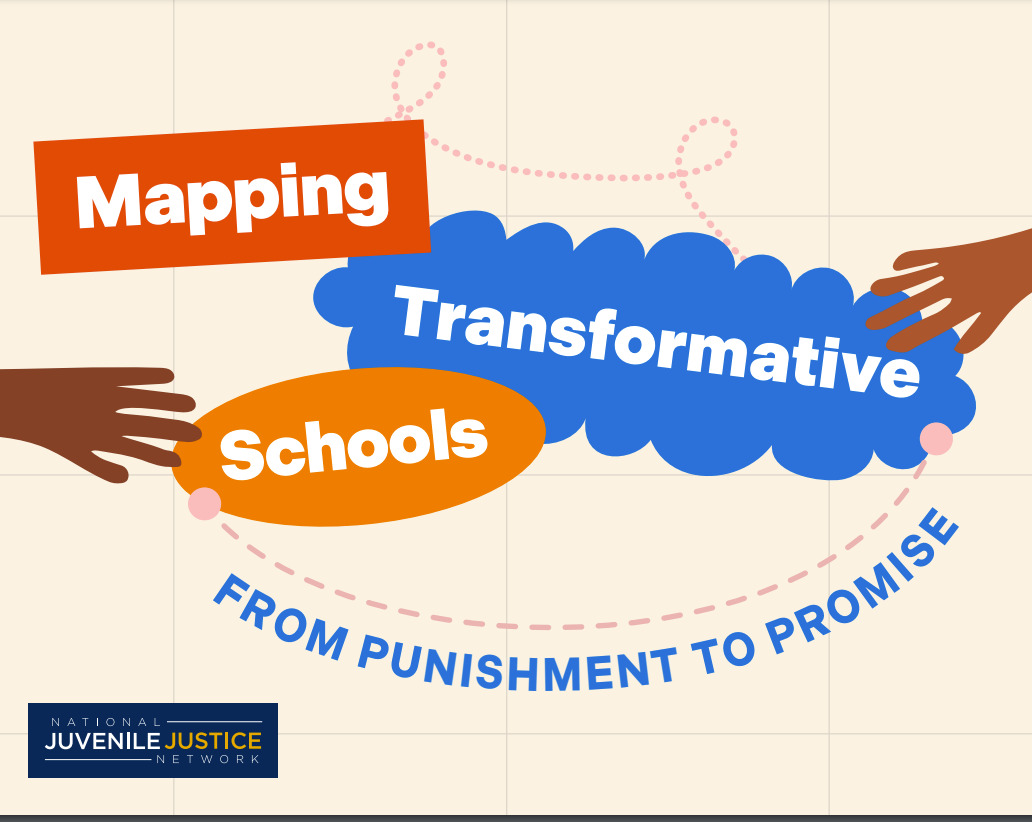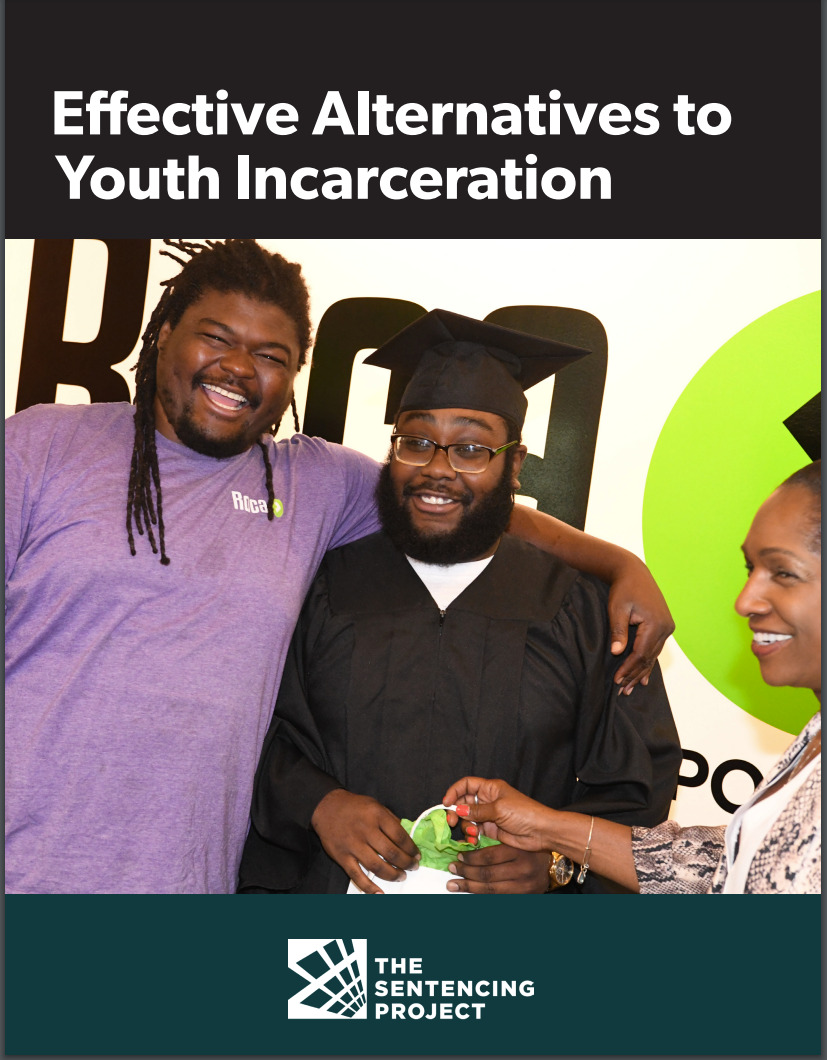The Juvenile Justice Resource Hub is a comprehensive source of information on cutting-edge juvenile justice issues and reform trends. You can find brief explanations and links for each JJIE Hub section on the JJIE Hub landing page. The Hub sections are updated regularly.
On this page - What's New on the Hub? - you will find the most recent resources featured in all our Hub sections. Check back here regularly for new material.
NEW RESOURCES
Why Youth Incarceration Fails: An Updated Review Of The Evidence
Despite declines in recent decades, the United States continues to incarcerate more young people than any of its counterparts worldwide. This report from the Sentencing Project presents and analyzes the negative consequences of incarceration for young people and explains why incarceration fails to rehabilitate youth and protect the public. It highlights a number of programs, policies, and practices that have been effective at reducing dependence on incarceration and offers recommendations for states and local justice systems.
Diversion: A Hidden Key To Combating Racial and Ethnic Disparities in Juvenile Justice
Research indicates that involving youth with the justice system yields more adverse effects than the intended behavioral changes while also contributing to racial inequities in youth justice systems. This report from the Sentencing Project emphasizes that diversion– a deliberate choice to address youth delinquency behavior without engaging the courts, is a crucial tool for addressing these problems.—. The report presents compelling evidence and recommendations regarding the effectiveness of diversion, racial inequities in current diversion practices, and potential for addressing racial inequities within the system through more consistent and widespread use of diversion.
Advancing Racial Equity in Pennsylvania's Youth Legal System Cohort Report
Across every state and locally operated youth legal system in the United States, youth and families of color experience disproportionate involvement with the justice system. In Pennsylvania seven counties have recently established teams to execute Capstone projects focused on advancing racial equity within their juvenile justice systems. This report from the Center for Juvenile Justice Reform at Georgetown University showcases these innovative approaches adopted in Pennsylvania to address racial and ethnic disparities within the youth legal system. It provides a comparative analysis of data gathered from the Capstone teams and task forces operating within the state.
Getting to Zero: Ending Girls’ Incarceration in California
In California in 2021, two thirds of arrests and one half of detention admissions for girls and gender expansive youth were for low level offenses that research shows can and should instead be addressed via community-based alternatives. Girls of color are disproportionately harmed by these practices. This report, compiled by Vera utilizing data from the Juvenile Court and Probation Statistical System (JCPSS), Juvenile Detention Profile Survey (JDPS), Racial Identity Profiling Act (RIPA) datasets, and Monthly Arrest and Citation (MACR) databases, aims to emphasize the necessity of halting the mass incarceration of girls and its implications for equity. Additionally, the report presents data on California's successful reform efforts in reducing arrests and detentions of girls.
Youth and the Juvenile Justice System: 2022 National Report
Juvenile justice practitioners, policymakers, and the public need comprehensive data about youth victimization and offending as well as the juvenile justice system’s response. This comprehensive report is the fifth edition of a series issued byThe National Center for Juvenile Justice and draws on data up to 2019. The 2022 National Report on Youth and the Juvenile Justice System (previously known as “Juvenile Offenders and Victims”) includes information about youth demographics, youth victimization and offending,arrests and placements, and other intersecting factors that impact justice involved youth.
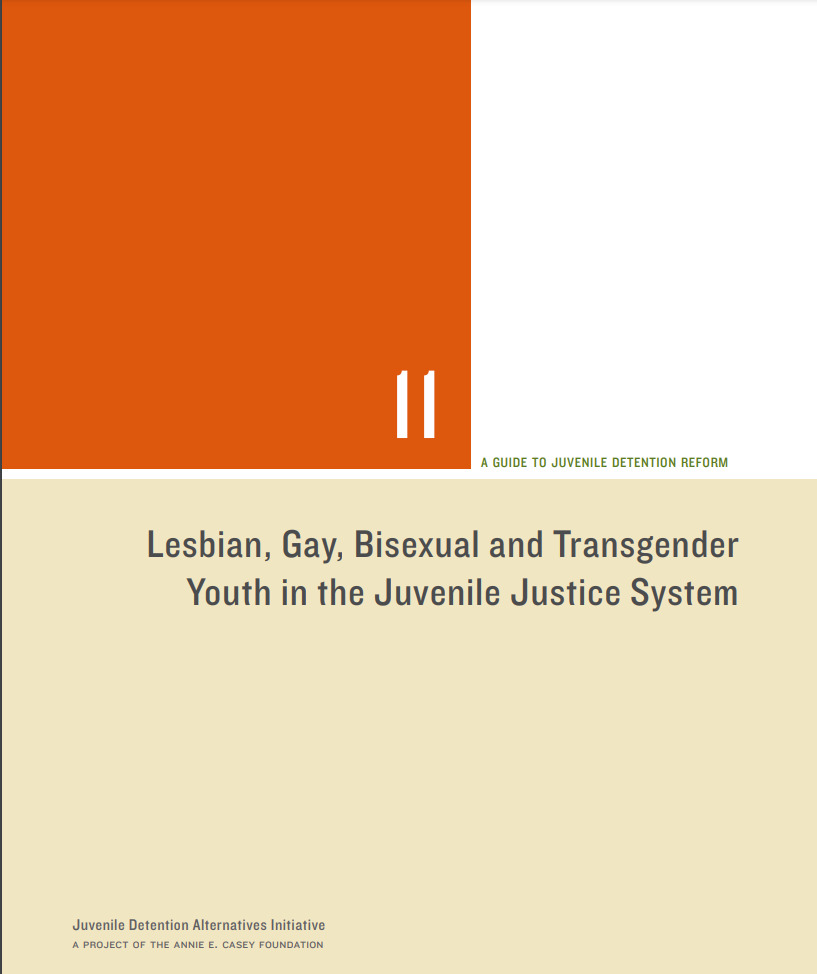
Lesbian, Gay, Bisexual and Transgender Youth in the Juvenile Justice System
Societal changes and legal developments over the past 30 years have caused the juvenile justice profession to turn its attention to policies and practices that better address the needs of LGBT youth. This report, prepared by Annie E. Casey Foundation in 2015, encompasses guidelines for staff training, approaches to promote professionalism, and strategies to mitigate biases when interacting with LGBT youth.. Furthermore, the report explores pertinent terminologies essential for comprehending the experiences of justice-involved youth who identify as members of the LGBT community.
Trends and Characteristics of Delinquency Cases Handled in Juvenile Court, 2020
Between 2005 and 2020 delinquency caseloads have declined while racial disparities have increased. This and other findings are summarized in a one-page data brief from the Office of Juvenile Justice and Delinquency Prevention. The brief summarizes key trends and characteristics related to delinquency caseloads handled in juvenile court including person, property, public order, and drug-related offenses for 2005-2020.
Mapping Transformative Schools: From Punishment to Promise
“School pushout” refers to the various systemic factors that stop students from completing their education. Examples include zero tolerance policies and law enforcement presence in disciplinary interventions and they disproportionately affect Black, Brown, Indigenous, LGBTQIA+, and disabled youth. In this report based on focus groups and individual interviews with youth aged 16-27 from across the United States , the National Juvenile Justice Network offers tools to foster a more positive school environment.
An Economic and Fiscal Analysis of Direct File Reform Proposals
Proposed legislation in Florida (e.g. HB 509 (2018) & SB 192 (2018), has sought to limit or eliminate direct file, a process in which juveniles are transferred from the juvenile delinquency system into the adult criminal justice system. This report prepared by the Center for Economic Forecasting and Analysis at Florida State University for the Southern Poverty Law Center includes a comparative literature review of direct file reform proposals in Florida and other states and a detailed analysis of their economic implications.
Tapping The Leadership Potential of System-impacted people
The California Justice Leadership (CJL) program is a first-of-its kind collaborative venture between Americorp and Impact Justice featured in this video and web post. CJL is a mentorship program that recruits previously incarcerated persons to support justice-involved youth and young adults. Mentors serve for a year or more and during their time in the program, they too get valuable professional development and training that they can carry into their career endeavors. CJL partners with other community based organizations and draws on the power of lived experiences to seek to end cycles of recidivism in the community.
Effective Alternatives to Youth Incarceration
Many alternatives to youth incarceration have consistently produced better public safety, less disruption for youth, and at a lower cost. This companion report to Why Youth Incarceration Fails from the Sentencing Project features six “Alternatives- to- Incarceration Models”. The report advocates for homegrown approaches while presenting the research evidence and success stories backing these approaches.
